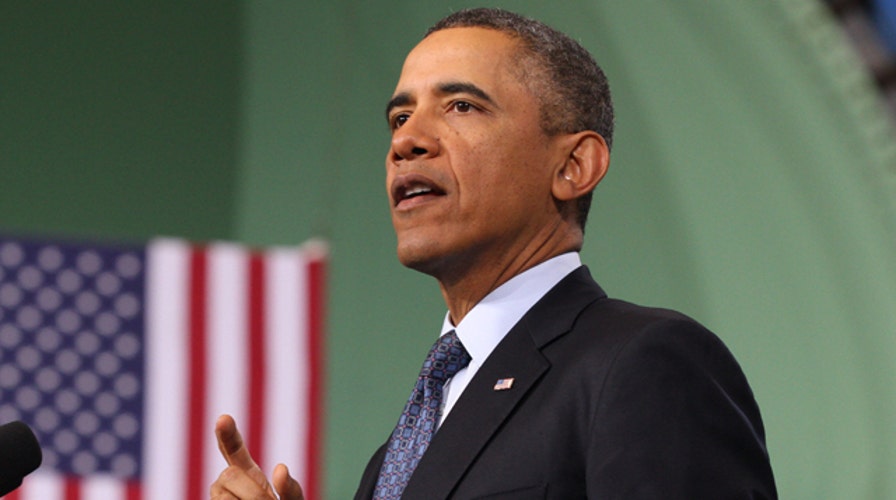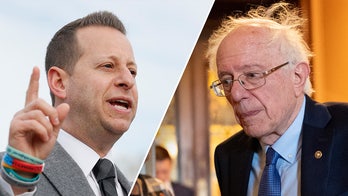Power Play 2/27/2013
Obama Inc. is proud to announce an Expansion. Plus: Stopping the sequester
“Look, I am not going to take any clients that conflict with OFA. What I want to do with my work is just work with people and causes that I believe in. And OFA will be the most important thing that I do.”
-- Jim Messina, campaign manager to President Obama, talking to Politico for an article rolling out his new firm.
So, the president is not disbanding his campaign, and in fact will be continuing to raise money for what was a billion-dollar effort last year. Big donors will reportedly be able to get face time with the president for helping finance the ongoing effort.
Now we learn that the president’s campaign manager will be keeping his position at OFA, previously known as Organizing for America and Obama for America, now called Organizing for Action, but taking on other like-minded clients.
The sitting president will have a permanent, personal, well-funded campaign arm that peddles access to the commander in chief and deploys those funds to help the president win ongoing political fights ahead of the midterm elections. And now, the campaign manager will be able to open up side ventures with corporations, campaigns and groups who he believes share the president’s aims.
What could possibly go wrong?
This evolving story about access, influence, the permanency of campaigning and the diminished role of the president as a dealmaker in Washington is fascinating in many ways. But two things stand out: What it says about the bias of the political press and what it says about the failure of the U.S. campaign finance system.
Imagine, if in 2005, Karl Rove, George W. Bush’s top strategist, or Ken Mehlman, his re-election campaign manager, had announced that rather than disbanding the campaign, it would be kept alive in perpetuity. Renamed Better County instead of Bush/Cheney, the new entity would help the president pressure Congress to allow private Social Security accounts, school choice, domestic oil drilling and a host of other favored topics of the re-elected president.
When oil CEOs, conservative activists, Wall Street investment moguls and others showed up with checks to fund the enterprise, lured by the promise of face-time with the president, how would those articles have looked?
When Rove or Mehlman announced that they would also be working directly with Halliburton, the NRA, the Christian Coalition and pro-Iraq war groups would a Politico write-up sound the same as it did for the launch of Messina Inc.?
When Hollywood, big bankers, big labor, green energy subsidy seekers, technology firms and other Democratic stalwarts drop checks on Obama and hire Messina will it sound the same as if Bush Inc. had done the same with traditional Republican funders?
“Partnering with stakeholders” or “Selling influence?” The answer depends on what you think of the aims of those doing the partnering or buying.
It is seemingly inconceivable to many in the political press that to a big chunk of the electorate the green, gun controlling, union organizing, Big Gulp banning, insurance mandating, bank bail-outing side of things is just as scary as the war, oil and investment side of things was to John Kerry supporters post-election. That’s because most of the reporters were Kerry supporters.
Bush, of course, didn’t do anything like what Obama is doing now and mostly played by the post-Watergate rules that steered politics in America for a generation. Rove stayed in the White House and Mehlman went over to run the Republican National Committee. Both men were trying to do the same thing for the president as Messina is now: win policy fights and Midterm elections. But Rove and Mehlman were doing it inside the confines of ethics and campaign fundraising rules, oftentimes ineffective or cockamamie but always tricky to navigate.
Mehlman, especially, had to deal with those rules but he also had to worry about what all of the members of the Republican National Committee and all of the Republican office holders wanted. He was Bush’s man at the RNC, but he was still at the RNC.
Messina has a constituency of one: Barack Obama, who not coincidentally, is the product Messina is selling. Obama is blowing off the Democratic National Committee, which will have to do the work of surviving midterm elections with little help from the incumbent president. And donors who want the biggest bang for the buck will quickly realize that it's better to be able to write unlimited checks for direct access than fuss with all those annoying old campaign laws. As the Clintons and Al Gore learned, those rules may seem toothless but can still deliver an unwelcome bite.
[pullquote]
The funniest part of the Politico write-up is the assurances that Messina will not be a lobbyist. Why on earth would anyone serious about peddling influence register as a lobbyist?
Registering as a lobbyist is required for those folks who trudge through Capitol corridors working on minutiae in legislation. It’s required to meet congressional ethics rules. But to pedal access to the president and access to his political machine? No registration required. Never has been.
Registering as a lobbyist would be stupid since it would force the administration to again crawfish on access to lobbyists. Unregistered, Messina will be free to float between the funders and the president without any icky labels or ethics troubles.
But the Politico article on the Messina rollout still assures readers that he will not become a lobbyist. Phew.
Whether this new arrangement will work at anything other than enriching Messina and helping Democratic donors stay plugged in is an open question. Will a permanent campaign based on community organizing principles deliver policy victories and an all-Democratic Congress for Obama or will Americans quickly tire of a lame-duck president who keep saying the same things? Time will tell.
What is clear, though, is that the campaign finance and ethics rules that politicians have been gaming so artfully since the late 1970s are kaput.
The reporters murmuring their admiration for the bold innovations of Obama and Messina in shucking the rules and refusing access to the press ought to bear that in mind as they consider the future. Now broken, the old rules will not be resurrected. What comes after this will be more egregious.
And how would they feel if the next bold innovator is a President Rubio or a President Paul and the “stakeholders” are Wayne LaPierre, Rex Tillerson and David Koch? And what if that same Republican president declined to answer questions on the subject saying he preferred to Tweet his opinions rather than be interviewed?
Excusing behaviors in presidents they like and trust paves the way for even worse conduct from those they dislike and distrust. Having taken a pass on Democratic misbehavior it will be impossible to raise the alarm when the Republicans come back around.
And Now, A Word From Charles
“And what all of this is about creating enough revenue, increasing American taxation, so he can have an entitlement state in Europe which requires the European levels of taxation. He is not interested in debt or cutting or deficits. He wants to spend because he wants expanded state. That is what all of this is about.”
-- Charles Krauthammer on “Special Report with Bret Baier.”
Chris Stirewalt is digital politics editor for Fox News, and his POWER PLAY column appears Monday-Friday on FoxNews.com. Catch Chris Live online daily at 11:30amET at http:live.foxnews.com.





